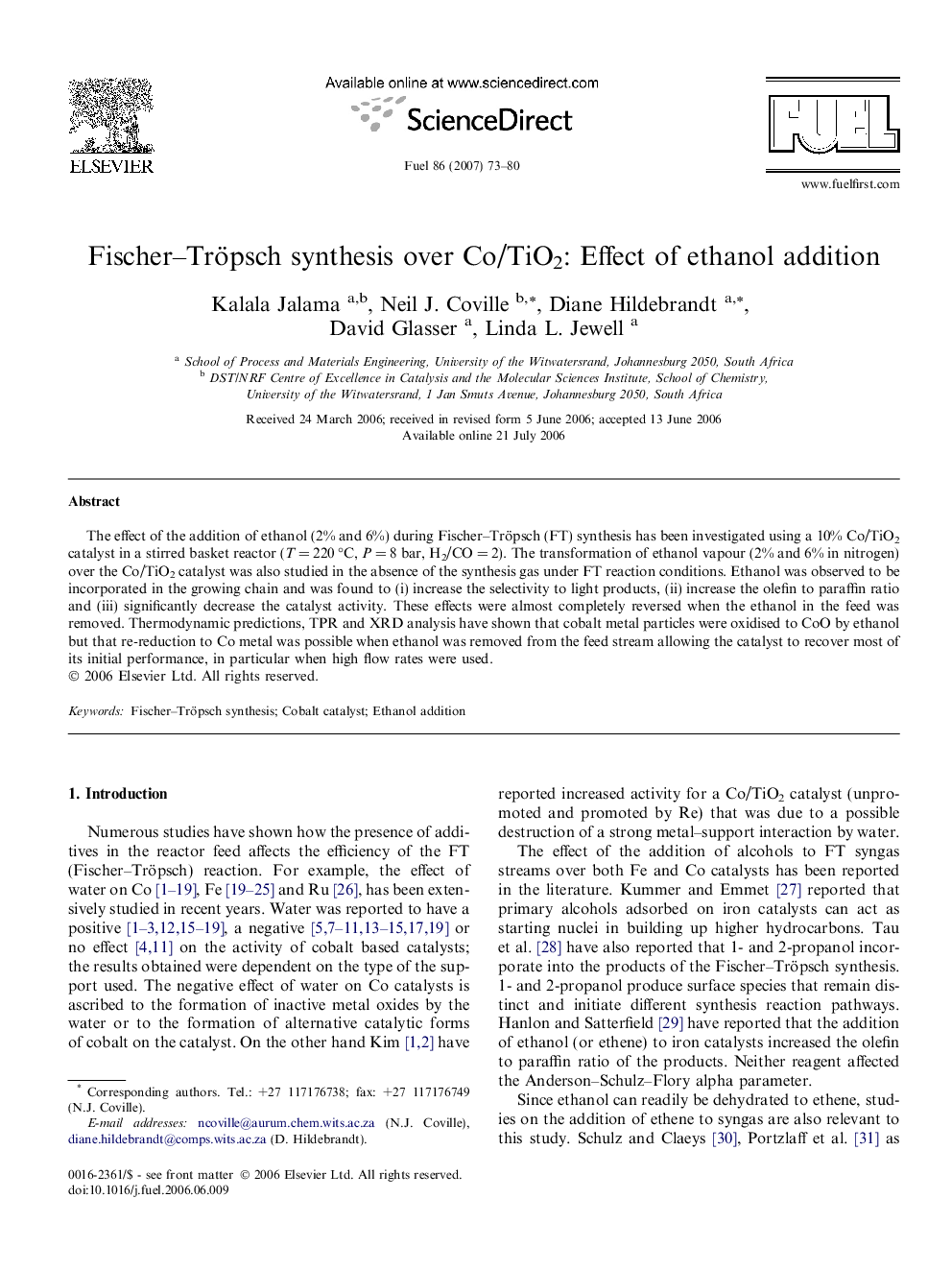| Article ID | Journal | Published Year | Pages | File Type |
|---|---|---|---|---|
| 208272 | Fuel | 2007 | 8 Pages |
The effect of the addition of ethanol (2% and 6%) during Fischer–Tröpsch (FT) synthesis has been investigated using a 10% Co/TiO2 catalyst in a stirred basket reactor (T = 220 °C, P = 8 bar, H2/CO = 2). The transformation of ethanol vapour (2% and 6% in nitrogen) over the Co/TiO2 catalyst was also studied in the absence of the synthesis gas under FT reaction conditions. Ethanol was observed to be incorporated in the growing chain and was found to (i) increase the selectivity to light products, (ii) increase the olefin to paraffin ratio and (iii) significantly decrease the catalyst activity. These effects were almost completely reversed when the ethanol in the feed was removed. Thermodynamic predictions, TPR and XRD analysis have shown that cobalt metal particles were oxidised to CoO by ethanol but that re-reduction to Co metal was possible when ethanol was removed from the feed stream allowing the catalyst to recover most of its initial performance, in particular when high flow rates were used.
